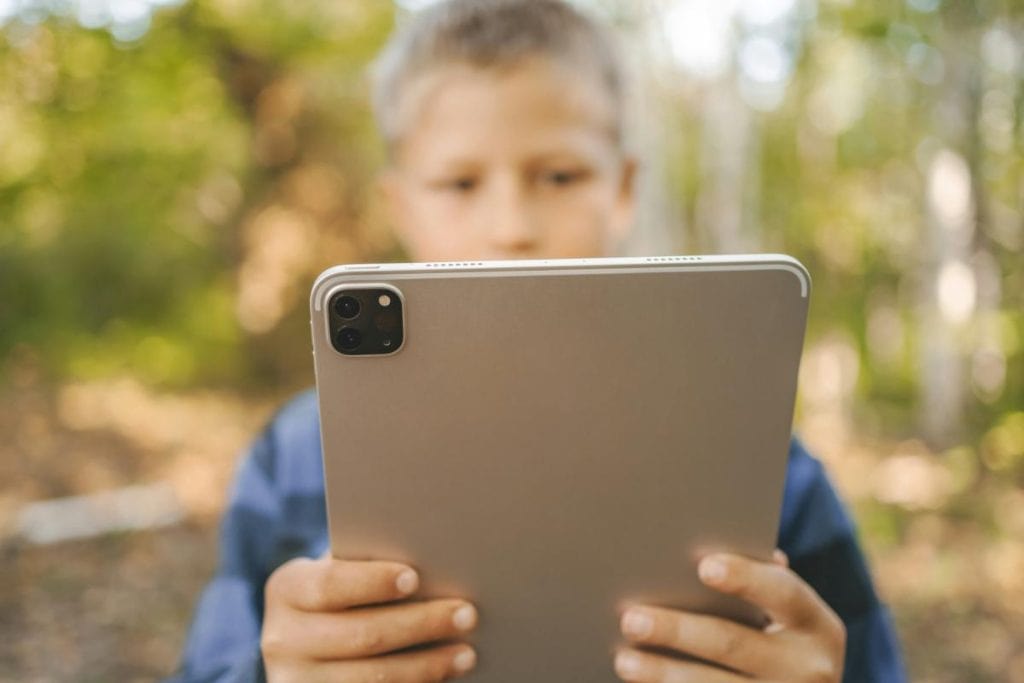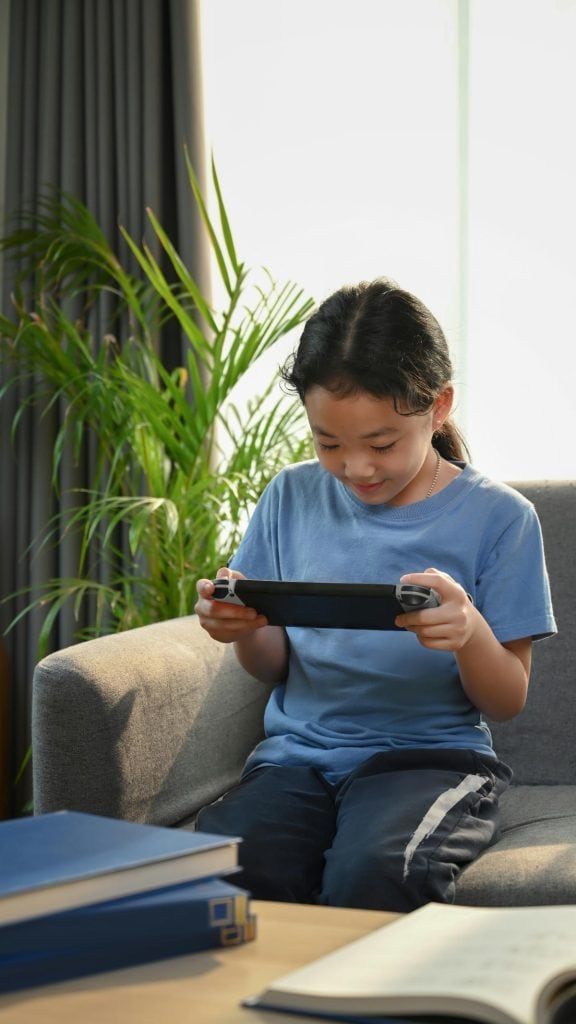
It’s inevitable that your kids will grow up with screens after a certain age. In fact, you probably have to a large extent too, and you use them all the time. Getting rid of them completely isn’t really possible, or at least it’s very difficult. They’re used in schools quite extensively even if they’re limited at home. So the best thing to do is make sure they’re used in a healthy way, helping your children use them as tools that can encourage them to be creative and learn new things.
The time your children spend using screens can be educational and productive, allowing them to learn and grow, or sometimes just relax and have fun. Try some of these tips to make screen time work for all ages.
Limit Screen Time to Make It Count
Screen time is likely to be most effective if you limit it. Using screens can be useful for education and entertainment, but they’re not necessary all the time. When you limit their use, you can make sure every minute really counts. Screen time can be more appreciated when it’s limited to no more than a couple of hours each day, at most.
Experts recommend varying levels of screen time depending on age, with the American Academy of Pediatrics saying that babies under 18 months should be limited to video chats (e.g. with long-distance relatives), and toddlers up to two years should watch quality programming with their parents. Preschoolers should have no more than one hour per day (watching with you), and older children should have consistent limits for healthy screen time that doesn’t disrupt other parts of their routine.
Do It Together
Enjoying screen time together with your child is a great way to make sure it’s productive. When you use screens together with your child, you get a better understanding of what they get out of it. You’ll see what lessons they’re learning from watching TV and you can also make it a more active experience. Engage your child in conversation about what they’re watching and doing to help them develop their language and other skills. Screen time could also include playing games together or using devices to talk to friends and family.
Screen time together isn’t just for parents of little ones, either. As your child gets older, it can be enjoyable to spend that time together and discuss the things you’re watching or doing. You even get to introduce them to your favorite movies and shows, as they become age-appropriate. It’s a good way to encourage open discussion and sharing your thoughts and feelings with each other.
Watch Educational Shows
Not all shows have to be educational, but choosing to watch shows that teach something will make your child’s screen time more valuable. Fortunately, plenty of kids’ shows are designed to be both fun and educational. Early years’ programming is especially designed for this, helping little ones develop important skills and learn key lessons. And, as a bonus, a lot of children’s TV is also designed to be enjoyable for parents too, so it’s not as mind-numbing as you might expect it to be.

When you’re choosing shows for your child to watch, think about what they’re designed to do and what they might teach. Many shows help children develop language, from the first words for toddlers to more complex language for older children. Others teach skills such as numeracy or literacy, while some might focus on moral lessons such as sharing or being kind. Each episode, which is usually pretty short, can present an opportunity to start a conversation or continue learning something new.
Learn Games and Puzzles
Screen time isn’t just passively watching things. It can also be a chance to engage in different activities, such as games and puzzles. You’ll find a range of options for all ages, and many of them are even free. You can start with things like simple matching games or jigsaw puzzles with younger children, while older children can even learn to play games like chess or checkers. Playing games and completing puzzles is a more active way to make use of screen time and make sure your kids get more out of it. They can learn all kinds of skills, from improving their spatial reasoning to logic and language.
Competitive games also have the bonus of helping children work on an important social skill. Learning how to lose or win with grace is something that can take time, but it’s something all children need to learn. Playing games where they could win or lose (either with someone else or against the game itself) helps them work through the emotions that come with either outcome.
As your children get older, the games they play can change too. They might be interested in playing video games, which offer various gameplay styles. This can make it more important to monitor what types of games they’re playing, as well as the pros and cons of each game. They can still learn from these games, and might gain a social benefit from it too, but it can also be important to limit their time playing.

Find Creative Activities
Devices are fantastic for a number of creative activities too. Although you might prefer a pencil and paper, or other arts and crafts materials, a tablet can be really handy when getting messy isn’t practical. Whether you’re in the car or just don’t have time to clean up after a crafty session, creative apps can allow children to draw, color, or even make music.
This is another way to make screen time more engaging and turn it into something active, instead of a passive activity where your children are just staring at a screen. Even some games can have a creative element. For example, a lot of children like Minecraft for its ability to be creative and build all kinds of designs.
Watch How Your Kids React
If you want to help your children develop a healthy relationship with screens, one of the best things you can do is to keep an eye on their reactions. Watch how they react to different activities and how they’re affected by their screen time. If they’re relaxed and happy, that could be a sign that their activities are good for them. But if using devices often leaves them feeling sad, angry, or frustrated, it’s likely a sign that some changes need to be made.
You won’t necessarily have to ban them from using screens, but you might need to examine what’s going wrong. Perhaps they’re talking to someone who is upsetting them. Or maybe they’re struggling to handle their frustration with being unable to win a game. You might need to talk to them about specific issues or adjust your approach to screen time.
Talk About Safe and Healthy Screen Time
Maintaining open discussion with your children about their screen time is essential if you want it to be safe and healthy. This can include things such as talking about how to safely interact with other people, or how to recognize when it’s time to step away and do something else.
Don’t wait for a problem to arise before you start an important conversation. Try to have regular talks about screen time and safe, healthy ways to engage in different activities involving screens. Encourage your child to come to you with any concerns they might have, and make it clear they can ask questions or raise concerns without judgment.
Screen time can be productive and educational, helping children learn and even giving you a chance to bond with them. Think about how you want them to make use of screens, and what they should get from it.
